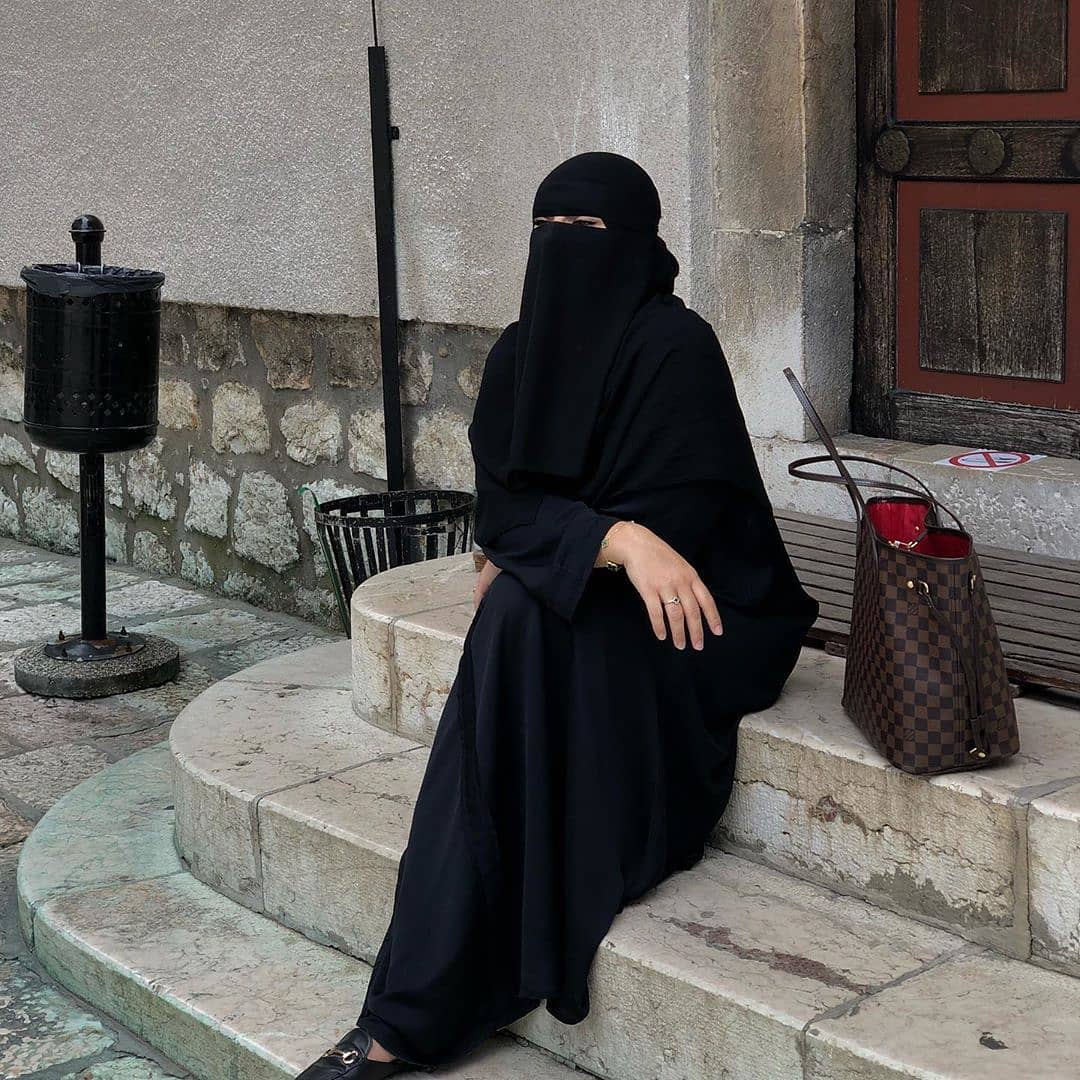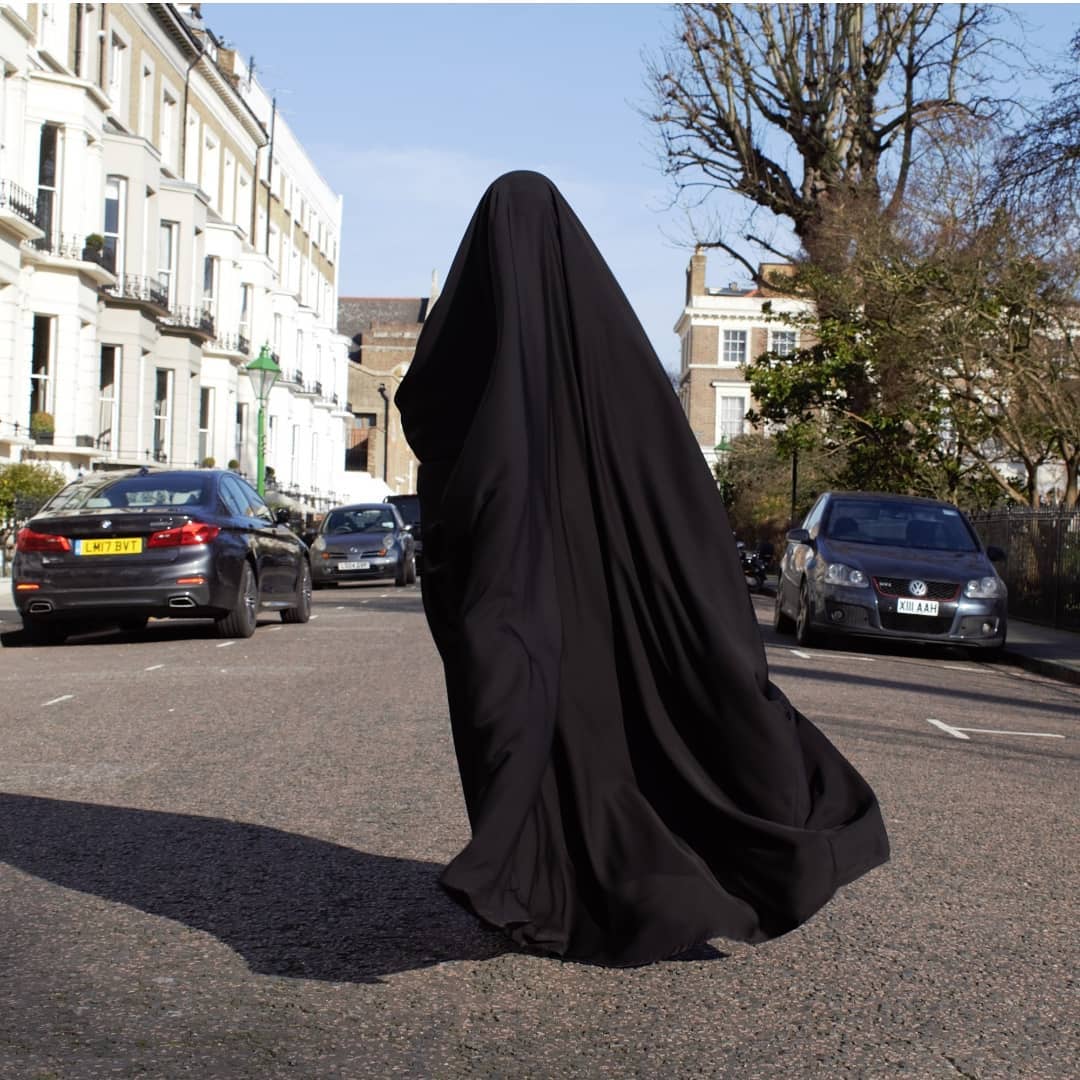Burqa (veil, burqa) is the traditional clothing of women in Muslim countries. This element of a lady's wardrobe is a long robe with false sleeves and a special hair net covering the girl's face. The veil is most often worn in the countries of the Middle East and Central Asia.

@niqab_aswad
The name itself - “burqa” - has Persian roots. Initially, such closed clothing was worn not only by women, but also by men.
The first mention of the burqa dates back to the 15th century, but there is a possibility that it appeared much earlier. At first, residents of the Middle East and Asian countries wore the veil solely to protect themselves from strong dry winds and sand. However, since 1876, when the Russian Empire conquered Asian countries, women began to wear the burqa so that their faces and bodies could not be seen by strangers, especially men of other faiths.
In 1927, mass actions of the Soviet government against the wearing of national clothes and other Islamic traditions by women took place in Uzbekistan.This behavior caused a storm of indignation on the part of the Muslim clergy and supporters of classical Islamic behavior. Soviet activists publicly burned the burqa because they believed it was a relic of the past. Even despite the protests of the women themselves, they were forced to bare their heads and shoulders.
Of course, such events could not go unnoticed and served as the “birth” of the Islamic military-political and religious Basmachi movement, whose representatives were categorically against the new system. In order to prevent their women from violating the will of Allah, members of separatist groups provoked terror against their own local girls. Two and a half thousand Muslim women were subjected to violence and murder by their own compatriots.

@niqab_aswad
In Europe, women's wearing of burkas is also considered savage. Thus, former French President Nicolas Sarkozy in 2004 legally banned wearing the hijab in French schools. The Muslim community was categorically against this. Then, in 2009, Sarkozy again spoke out harshly about wearing full-length clothing. He said it violates a woman's dignity, deprives her of self-determination and separates her from social relationships with other people. A year later, the appearance of women in burqas in public places in France was completely banned.
In Germany, only government officials and civil servants are not allowed to wear burkas. According to residents of democratic Germany, employees communicating with citizens of the republic do not have the right to be covered.
Belgian authorities have also banned Islamic women from wearing the burqa and niqab, a head covering that completely covers the face and leaves only a thin slit near the eyes.Violation of this law is punishable by a fine or a week's imprisonment.
Switzerland and other European countries also consider wearing the veil to be humiliating to women.
Even in Muslim Turkey, the mandatory wearing of this traditional attire was abolished. Mustafa Kemal, the former President of the Republic of Turkey, allowed his residents to wear national clothes at their discretion.
However, in some eastern countries women are still not allowed to leave home without a burqa and niqab. Thus, in 2019, three Iranian girls were accused of encouraging prostitution and anti-moral behavior, receiving 23 years in prison just for giving flowers to other girls in honor of March 8th in the Tehran metro without wearing national clothes.
In Afghanistan, violence against and humiliation of women occurs on a constant basis. Not only do they not have the right to go out without a burqa, but they are also constantly subjected to physical violence from men and their relatives. In 2015, a group of desperate activists, consisting of twenty young people, wrapped in burqas, took to the streets of Kabul, defending women's rights. Activists argued that the burqa is a relic of the past, and any representative of the fairer sex has the right to choose. The reaction to this protest was mixed and, unfortunately, nothing has changed yet!
I would like to believe that the time will come when the rights of Muslim women will no longer be oppressed, and those who want to take off their burqa and hijab will be able to do this without any censure from the public.